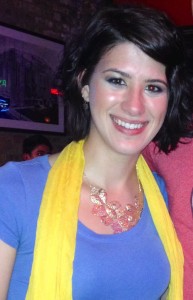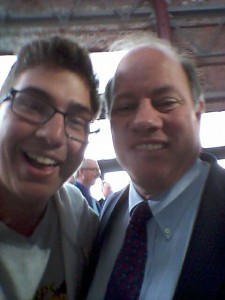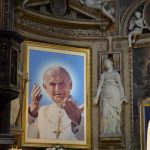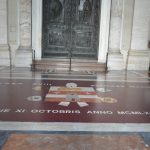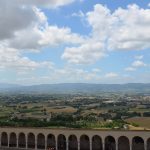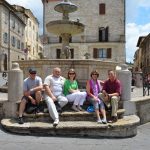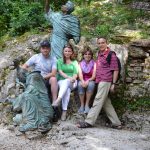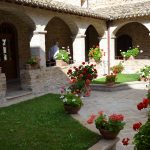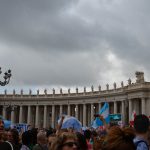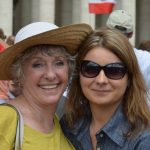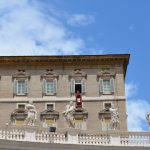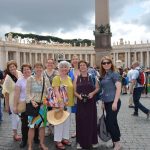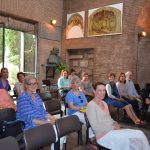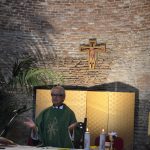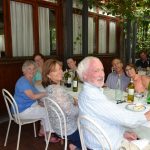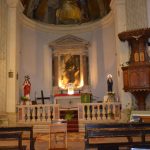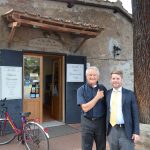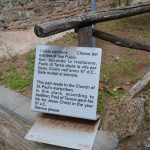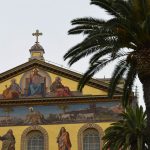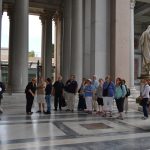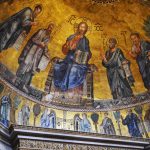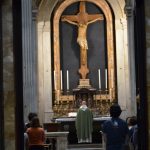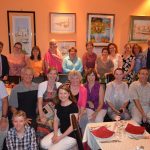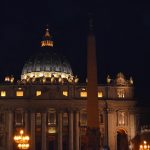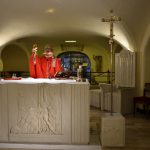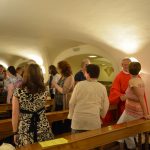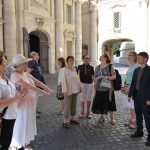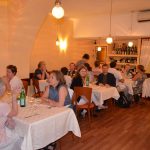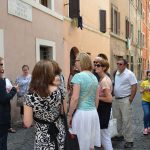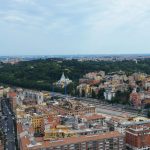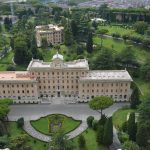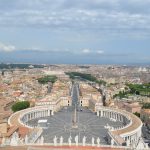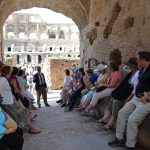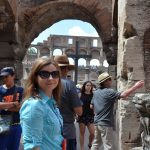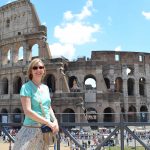The Martyrs of the UCA: A Community of Work and of Blood
What they worked for and why they were killed
I would like to begin by sincerely thanking Loyola University Chicago for its recognition of the UCA martyrs over the course of these past few days. Obviously the honor that you grant me today only makes sense when situated within the greater honor bestowed upon my Jesuit brothers and all of the Salvadoran martyrs. And with deep gratitude I accept this recognition.
One Community
I will speak of the UCA martyrs as one group. In more precise language, they came to form one connected body, diverse in its capacities and functions and coming together to form a larger body, which was the UCA. We have become accustomed to saying “the UCA,”, but not in vain. In this sense, and if you understand me well, it does not seem sufficient to speak of “Father so and so and his martyred companions.” Because we are speaking of one community, one body. I will, however, share a few short words about each one of them and how old they were when they were murdered.
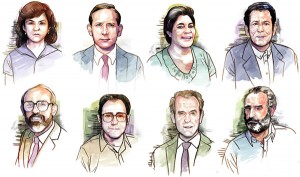
JoaquínLópez y López was 70 years old and the founder of the UCA and was its first Secretary General. During his final 20 years he worked in direct service to the poor in schools created by the Jesuits to serve the poorest of the poor known as Faith and Joy schools.
Ignacio Ellacuría was 59 years old and rector of the community as well as a professor of philosophy and theology. He was known for his exceptional intellectual creativity as well as his religious and ecclesial abilities.
Segundo Montes was 56 years old and a sociologist who founded the Institute of Human Rights. He was a researcher and accompanied many refugees and migrants.
Juan Ramón Moreno was 56 years old and a professor of theology, spiritual director, and expert on the Spiritual Exercises of Saint Ignatius of Loyola.
Amando López was 53 years old and was a professor of theology as well as the former rector of the diocesan seminary of San Salvador. He was also the rector of the UCA in Managua, Nicaragua during the Sandinista Revolution.
Ignacio Martín-Baró was 47 years old, a social psychologist and focused on the social-psychological consequences of poverty, violence as well as the liberating effects of religion.
Aside from their respective tasks within the university, each person, in his daily activity, took great care in attending to the needs of the people outside the university. During the weekends, they served rural and urban parishes without exception. Additionally, Ignacio Ellacuría was close to the reality of the people but not always directly rather, he was involved and affected by the oppression and poverty that permeated Salvadoran society on many levels.
Two women who worked in the Jesuit communities, Julia Elba, 42 years old, and her 15 year old daughter Celina, were killed alongside the 6 Jesuits. They were poor Salvadorans and symbols of the crucified majority the Salvadoran population.
This group of Jesuits worked and died together in community. I would like to discuss what these men worked for and the reason why they were killed. I usually think about what they did in dialectic terms. That is why I tend to explain not only what they loved but what they despised; not only what they worked toward but what they struggled against. In other words, we understand things better at times (sub specie contrari) under the contradictory form. Additionally we understand their lives better not just by remembering what they said, but by what they did, although, as we will see, there is a saying here that implies effective absolute action.
The Words of a Peasant
Paradoxically, I would like to begin with the words of a campesino, a peasant and landless farmer, a wise man, but nothing like an academic. They asked him “Who was Monseñor Romero?” And he responded elegantly, and concisely: “Monseñor Romero spoke the truth. He defended us, the poor, and for that, they killed him.”
It is not an arbitrary point that we mention Monsignor Romero when we speak of the martyrs of the UCA. First, although it tends to not be mentioned, the fact is true. Romero and the UCA worked together very closely for three years on many important things. Father Ellacuría solemnly proclaimed that this collaboration personally filled him with immense satisfaction. According to Father Ellacuría “In that collaboration there was no doubt who the teacher was and who the student was, there was no doubt who was the prophet and who the one that followed, no doubt as to who was the voice and who was the echo.
It is useful for us to refer to Monsignor Romero in order to speak of the martyrs of the UCA. It is equally useful to use the words of the landless farmer to organize our own words. The Jesuits of the UCA spoke the truth and defended to poor, and for that they killed them.
1. They Spoke the Truth
These words can appear to be too abstract, but in this I want to suggest it is crucial to speak of truth in order to know and understand the martyrs of the UCA, but to also to help highlight and comprehend the sad state of how we encounter the truth in El Salvador. Seen from its opposite view, the martyrs of the UCA wanted El Salvador to be stricken with and soaked in truth.
In order to speak the truth: 1) They had an primordial intuition that “things cannot be this way,” this is how they thought about the country, just as Karl Rahner had said fifty years prior about the traditional theology of the trinity. To say the truth meant not to be an accomplice to those who hide such important facts. 2) This truth, in its natural state, demanded a reversal of the reality, to be delivered through the university with its commitment to academic excellence in research and instruction, but also with a more comprehensive academic excellence: one with a social projection that enters society in order to reverse it. In short, “to speak the truth” meant to actively ensure that reality became that what it should actually be. 3) One could not speak of truth, however, without taking on the consequences of such work, which does not need further explanation on this the anniversary of the martyrs. 4) However, what is not often taken into account is that in speaking the truth they felt carried by it, working at the university, totally committed to the truth and with a profound sense of joy.
The martyrs publically spoke the truth through the magazine of Central American Studies (ECA), through the radio program YSAX that once belonged to Archbishop Romero, and increasingly they spoke on television. Those of a certain generation in El Salvador would remember the important moments when they publically spoke the truth. For example in 1974 they wrote a book about the electoral fraud, and in 1976 in an article about Liberation Theology, and also in an editorial called “At Your Service, My Capital.”
They founded the University Institute of Public Opinion in order to know and analyze the real truth about what the people were thinking. They founded the Radio YSUCA to make the truth publically available and open a space for people to participate publically in speaking the truth.
Many people are not aware of the biblical roots of their testimony to the truth: to profess the word and administer justice in order to defend the oppressed. As the psalms state: “justice and truth kiss.” I also heard them speak in secular language, stating: “we are free and objectively partial.” In El Salvador, where the defense of the oppressed does not exist, one can doubt, and they doubted at times that there actually was truth. And where there was defense of the oppressed is the space they would open a path to the truth, which would be completed through study and research, and through economic, political, religious, technological and scientific projects at the UCA. And they believed that one could verify in a quasi-scientific way if the knowledge produced and the projects carried out were good and true or not and if they did or did not defend the oppressed.
They spoke the truth with authority, which is a necessary condition (sin qua non) at a university based in a serious and profound pursuit of knowledge. However, in order to communicate with authority one requires credibility. This was expressed with honor and a real consistency between what they said and what they did –all of which overflowed into a defense of justice and a love for the people. This took its maximum form in their final moments characterized as a complete handing over of self to the struggle for the truth.
In a country ravaged by poverty, replete with violence and war, they spoke the truth conscientiously, mentioning the names of the victims, the murders and massacres. They also named perpetrators of the violence and the various branches of the military, paramilitary and security forces that they belonged to. In similar fashion when the perpetrators were from popular organizations they spoke of the exact circumstances, times and places where the events took place. They demanded reparations as an obligation of justice and condemned all forms of impunity.
Each one of them, according to their temperaments, spoke affectionately of the victims. They published their stories in the magazines Process and Letters to the Churches. They were moved by the goodness and hope of the poor.
In putting it all together, the UCA was a vehicle for speaking the truth and in this way it provided an important good to the country. The UCA embraced the idea that the country be filled with and wrapped in the truth. And that it overflows with institutions, associations, trade unions, universities, and churches.
2. They defended the Poor
The essence of speaking the truth goes directly along with the task of the university, and yet, historically, the defense the poor has not been directly associated with the university. Nevertheless, the martyrs of the UCA did exactly that; they defended the poor.
Like Monsignor Romero, they defended the poor in many ways, including university projects that leant technical support, through their teaching and health projects. They poured their efforts into a social trajectory that had a long reach, working for a third social force, or a third way, which brought together all those who wanted an end to the war. They worked in such a way that the people believed in them, so that the people could “have a voice.” And from 1982 onward, they set off in a totally concrete and urgent direction which required them to work first for a dialogue, and later for negotiation. It was a full and complete university response to the defense of the poor.
I think that the word university was fundamentally instrumental for the defense of the poor just like the word pastoral was fundamental for Archbishop Romero. And this was the same on a public level as it was on a private level in terms of words of influence. The Christian inspiration of the UCA also made it possible for the word “university” to be expressed in such an important way. It was present in the way one pronounced the word and dialogued with others as well as the actions that the word gave rise to: which was to put an end to the war and humanize the country. It is important to remember that Christian inspiration – and here I do not mean simply belonging to a particular Christian church or being completely enmeshed in a hierarchy – was and is an essential dimension of the UCA, as recognized in its statutes. Without this inspiration, no institution would have energy or direction. If that inspiration is Christian, it promotes an energy of love and total gift of self which leads to the society of the Kingdom of God based on the equality of everyone, always starting with the least of all. The most important aspect of the Christian Inspiration is that it inspires the truth. The martyrs were convinced that such an inspiration is good for the university and more concretely for a Salvadoran university living daily horrors and embracing hope.
That a university should come to the defense of the poor, as did Archbishop Romero, is not an obvious task. This is an important concept, and many people do not see it this way. It is important to think of the university as a good for the poor. This is similar to the way in which the Puebla document speaks of the “option for the poor.” To add that this option is preferential is to take a step further, because it emphasizes that it is a real option, which is something that is not commonly taken into account. But we still have not arrived at the same clarity and perception of the peasant farmer from earlier who is in total agreement with what the bishops said in Puebla in 1979, when they spoke of what God does with the poor: “For the mere fact of being poor God defends and loves them.” This is what the UCA martyrs did. Yes, they loved them. However, they emphasized a logical priority in the defense of the poor.
How does one defend him or herself with words? A good lawyer can do it with professional ability and the necessary intelligence to find the argument that will favor the person he or she defends. But for a university the fundamental piece is something else. It defends the poor, fighting as an institution against the lies that cover up and hide the truth. A thinker from the first century who we call John wrote one of the gospels. And in that gospel he says: “the evil one is a murderer and a liar,” and in that order. The victims of the evil one are the poor, of course. They are the ones who do not enjoy a full life because they lack basic goods, which condemns them to a slow death. And then there are those victims of unjust violence who die a quick death. To defend their lives is to defend them from death. As John insists, the nature of this kind of death is that it tends to get covered up in such a way that where there is murder there are lies. To defend the lives of the poor is to fight against those cover-ups and lies. Both tasks for us are central to the university.
The martyrs did many things to combat lies and to unmask that which was being hidden. I also think that, just as in the case of Archbishop Romero, it was the most specific way to defend the poor. And they soon experienced that there is no defense of the poor without taking several risks.
3. And for that they killed them
The landless farmer I referred to earlier spoke of what Monsignor Romero did. Romero told the truth and defended the poor, and the campesino concluded correctly by saying and “for that they killed him,” precisely “for that,” because of what he did. Monsignor Romero could have been killed by someone looking for personal revenge, or by someone in the street who was not thinking clearly. But the peasant put his finger on the deepest part of the wound: they killed him for doing two things highly necessary for the country and worthy of praise: “speaking the truth” and “defending the poor.” They killed him for doing good things. This injustice was an ethical scandal, it was a metaphysical scandal, and it was an absurd act of senseless violence.
In addition, the murder of the martyrs of the UCA also has a “for that.” In life they were viciously persecuted in different ways and they were killed in a calculating and hateful manner. And there was a reason for this, a “for that.” It goes without saying that there is a great parallel with the murder of Monsignor Romero and the many other women and men that were martyred. Nonetheless, it is good to remember these scandals and injustices on a universal level as well.
Here in the United States, where we are tonight, it is important to remember that in our world today there continue to exist many victims who die from hunger, malnutrition, the absence or poor quality of health care, and from a lack of access to education. There are innocent victims who die just because they live in places like Iraq, Pakistan, The Congo, in El Mozote and the Ixil Triangle of Guatemala. These are innocent people who die blamelessly. These are some of the horrors that characterize our world, but the United Nations, the European Union, the Organization of American States, the leaders of the G-7 and G-20 and the emerging super powers of Asia and other places do not speak in these terms.
Every now and again these groups form generic ideas and theses about how the poor have certain rights to life (to healthcare, education, vacation days, migration, work, equality of gender, the care of children and peace). Something is better than nothing, but all of that does very little to set straight the reality of this life and what is required to promote it. And occasionally, they tend to praise and honor those who speak the truth and defend the poor. In 2010 the United Nations declared that March 24th, the day that Monsignor Romero was killed, would be the International Day for the Right to the Truth Concerning Gross Human Rights Violations and for the Dignity of Victims. And a few days ago, on November 14th, UNESCO unveiled the incorporation of the academic work of Ignacio Ellacuría, into the national committee of El Salvador as part of UNESCO’s Memory of the World program. All of these things are good and useful. However, these big institutions practically do next to nothing, especially if in doing something it means giving up some of what it has or risks the loss of prestige and achievement.
Ignacio Ellacuría was right when he said in is final discourse that “This civilization is gravely ill and in order to avoid a fateful outcome it is necessary to change oneself from the inside out, only a hopeful and utopian person can have the energy to try this in communion with all the poor and oppressed of the world, to reverse history, to subvert it and to launch it in another direction.”
Ultimately, and not in a perverse way, we have to thank the martyrs of the UCA. But that does not always happen. They were killed precisely for speaking the truth and defending the poor. That is the intuition of the peasant “they killed them for doing good.” This is the scandal and the senselessness that we also live with in the Twenty-first Century.
The martyrs of the UCA lived and died so that the opposite would occur. Our responsibility is to continue their struggle by speaking the truth and defending the poor. Our hope is that Archbishop Romero and all the poor and oppressed of the world energize an encourage us. In the little known words of Ellacuría “More and more now, it is the university’s turn to stir up hope.” And in the words of don Pedro Casaldaliga, “If they take hope away from us, they have taken everything.”
The legacy of the martyrs will always remain. “They spoke the truth” and “defended the poor.” For many people this means metanoia, a changing of one’s life toward the praxis of justice and taking a step toward a utopian hope.
I think that the activities that have been organized here at Loyola University Chicago during these recent days are a promise toward those ends.
Jon Sobrino
Mundelein Auditorium
Loyola University Chicago
November 20, 2014
For more news and updates, follow @BrianSchmisek on Twitter and @LoyolaIPS on Instagram!
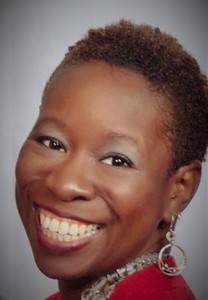
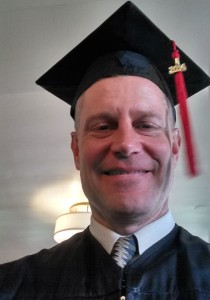
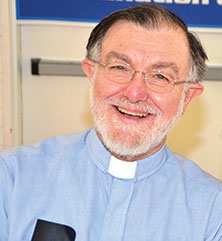
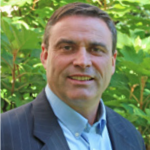 Thompson graduated from IPS with a master’s degree in Religious Education. In addition to being an author, he has served the Archdiocese of Chicago as a deacon since 2011.
Thompson graduated from IPS with a master’s degree in Religious Education. In addition to being an author, he has served the Archdiocese of Chicago as a deacon since 2011.
